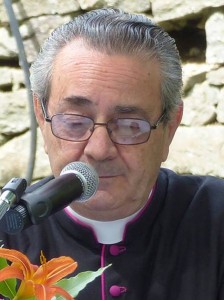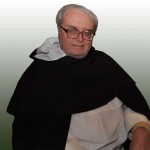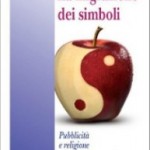 By Prof. Antonio Livi
By Prof. Antonio Livi
Some Italian scholars (Pier Paolo Ottonello, Roberto Di Ceglie, Fabrizio Renzi) have already tried to draw a synthetic overview of my logical thought. William Slattery is the first non-Italian scholar who did it, and I sincerely think that his attempt is the best one, both for its completeness and for its intellectual penetration in the matter. So it is now for me a pleasure to present it and to recommend it to all who are concerned with the contemporary discussion about the issue of truth.
William Slattery, an Irish priest living in Rome, was studying Philosophy at the Gregorian University, where he defended in 2015 his doctoral thesis, whose subject was my own interpretation of the main principles of Thomas Aquinas’ epistemology. The book that now I have the pleasure to present is just based in the conclusions of the research performed for his Ph.D. This research deals with my proposal of systematizing and updating the philosophical thought of Saint Thomas in relation with the key problems of epistemology, trying to connect in a logical system his main doctrines, i.e: i) the metaphysical nature of logical truth, as adaequtio intellectus ad rem; ii) the primacy of direct experience over both reasoning and faith in a witness; iii) the alethic function of the first principles of knowing as the common background of all possible achievement in the search for truth; iv) the judgment as the reflexive act of the mind by which the thinking subject express his consciousness of having reached the truth about some concrete object in a certain moment. In order to perform this project of systematizing and updating the philosophical thought of Saint Thomas in relations with those topics, I took advantage of the modern notion of “common sense” which had been developed by several philosophers, not necessary belonging to the Thomistic tradition, in their defense of metaphysical realism, before against Descartes’ idealistic system and after against Kant’s transcendental system. Moreover, I took advantage of the contemporary logical achievement of the American scholars belonging to the analytic school. For this reasons, Slattery’s attempt to perform a critical comparison between the doctrines of Saint Thomas and my alethic logic system was really very difficult, especially because it required a deep penetration in the very meaning of the different terms used by Aquinas and modern and contemporary philosophers.
But Slattery was capable to overcome those difficulties. He reached an excellent degree of comprehension of Aquinas’ thought having spent many years to an attentive reading of all his epistemological works. And, for what concerns my own thought, he spent almost three years to read my books on the alethic logic and to meet me personally in order to discuss about the right interpretation of what I wanted to maintain. He was really able to show that what I defend with my ‘philosophy of common sense’ is precisely the epistemic primacy of common sense among all kinds of ordinary knowledge in order to save a holistic theory of truth. But he was also capable to underline my own notion of “common sense” –which is very different from the sociological or the psychological one, since it pertains to epistemology, which is the main issue of philosophical logic. Actually, my philosophy of common sense should be understood as something similar to what Roderick Chilshom called ‘the foundations of knowing’. In other words, common sense, as I conceive it, is the first step of a theoretical process which leads to overpass the simply semantic holism, i.e. the holism of meaning, in order to take in account the alethic holism, i.e. the holism of truth. This is made possible by detecting a set of logical connections between judgments based on the truth as the basic value of judgments. The result is an axiomatic system of epistemic logic based on the acknowledgement of the real dependence of every judgment on the truth of its necessary presuppositions, or logical conditions of possibility for it to be true. This is the meaning of what I maintain as the basic law of thinking, according to the most rigorous phenomenology of the mind processes – which are all directed, in any case, to the consciousness of truth, i.e. to the certainty that the contents of my judgment, here and now, is really true, and I cannot absolutely suppose the contrary to be true. This can happen only when my judgment is strongly founded in its presuppositions, so that I realize that it is just the necessary result of all true knowledge I have already obtained and assured with my former certain judgments. Then, this is the general framework of what I conceive as the holism of truth. According to this logical system, any thought of truth –and any assertion which can express it– is linked with all the others thoughts in its very epistemic justification, through the need of finding its own premise and presuppositions.
In such a holistic system of alethic logic, my notion of common sense retain a very narrow extension, since it refers only to few, well determinate primary certainties which are the common presupposition of both ordinary and scientific knowledge in all their forms and in all their degrees. In others words, “common sense” is in my logical system the very hard core of the holistic structure of truth. I reached such a conclusion taking in account the basic date of the cognitive science, the most advanced studies on the philosophy of mind, and the best results of the phenomenology of consciousness – which makes use both of subjective introspection and the analysis of the inter-subjective communication. I realized that in the consciousness of every thinking subject there are some certainties about the ‘real world’ –certainties whose epistemic justification is founded on the immediate evidence of existing beings which necessarily and always are present in everyone’s experience-

But I maintain much more. In my system such certainties constitute the very first link in the chain of presuppositions; so that they can in no way be subject to doubt. This means that their non-truth is absolutely unthinkable: actually, no one can ever really doubt them, and one must understand that any affirmations to the contrary are merely verbal posturing: actually, they respond to some pragmatic logic, and not the expressions of a real certainty, endowed with its own adequate epistemic justification. Given that they constitute the nucleus of experience, understood as a body of unmediated knowledge, such certainties are present to consciousness in every moment of the search for truth as the logical presupposition of all knowledge deriving from reflection and inference, both inductive and deductive. For this same reason, such certainties function as an ultimate criterion of truth to verify any hypothesis successively formulated. They therefore constitute the main alethic presupposition, that is, the presupposition necessary for any ulterior knowledge to be thought of as true. In fact, on the basis of these original truths, every thinking subject verifies, time after time, the admissibility of any hypothesis – formulated by himself or proposed by other subjects through one of the ways for communicating thought – that presents itself in the search for other truths over the course of his lifetime. As a result all scientific knowledge, should be structured as system logically compatible with the primary truth of common sense, so as to place the instruments of dialectics (reflection, interpretation, inference) effectively at the service of the search for further truths.
ENDORSEMENTS FOR THE LOGIC OF TRUTH
“Some Italian scholars…have already tried to give a synthetic overview of my philosophy of alethic logic. William Slattery is the first non-Italian scholar to do so, and I sincerely think that his attempt is the best, both for completeness and intellectual depth. So it is a pleasure to present his work and to recommend it to all who are concerned with the contemporary discussion about truth.”
‒ Msgr. Antonio Livi, Dean Emeritus of Faculty of Philosophy, Pontifical Lateran University, Rome.
“Fr. William J. Slattery gives us a clear, rigorous, deep, and complete study of the questions raised by one of the most interesting philosophical currents of our times: the philosophy of sensus communis of Antonio Livi. Whoever already knows something of Livi’s thought will find here the possibility of valuable critical instruments for an ever greater awareness of the range and value of the philosophy of sensus communis; those who have never had contact with this philosophical orientation will benefit from a very good text that will greatly facilitate their direct contact with the works of Livi.”
‒ Prof. Dario Sacchi, Catholic University of the Sacred Heart, Milan.
“Scholastic logic was taught in two parts: formal logic, the ‘lesser’ logic or Summulae (title of the popular 13th-century textbook of Peter of Spain) and ‘greater’ logic, also called ‘dialectics’ or ‘material’ logic: debates over logic itself and metaphysical and noetic studies of the structure of reality with a view to determining the foundations of ‘science’ and so of truth. Formal logic today lies in substantive continuity with the ‘lesser’ logic but the ‘greater’ logic is little practiced or studied. In his fine work on the logic ‘of truth’, Father Slattery examines, in the light of St. Thomas Aquinas’s metaphysics of cognition, the ‘alethic’ logic of Msgr. Antonio Livi, a ‘material’ logic ‘of contents’. In this view, the first two acts of the mind, apprehension and judgment, are stressed; the third, formal inference, is complementary. The ‘material’, the content apprehended and judged, is the pre-philosophical, ‘common-sense’, experience of certainties beyond cultural difference. Today there are many ‘informal’ logics, critical thinking, the new rhetoric, pragmatic logic…, but the alethic logic of Livi and Slattery is unique, based explicitly on sound philosophical analyses. The Logic of Truth, I believe, will reward the reader with important insights in the tradition of the ‘greater’ logic.
‒ Dr. Walter Redmond, Austin, Texas.












